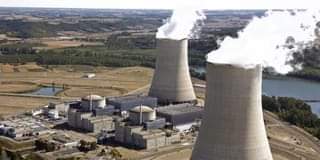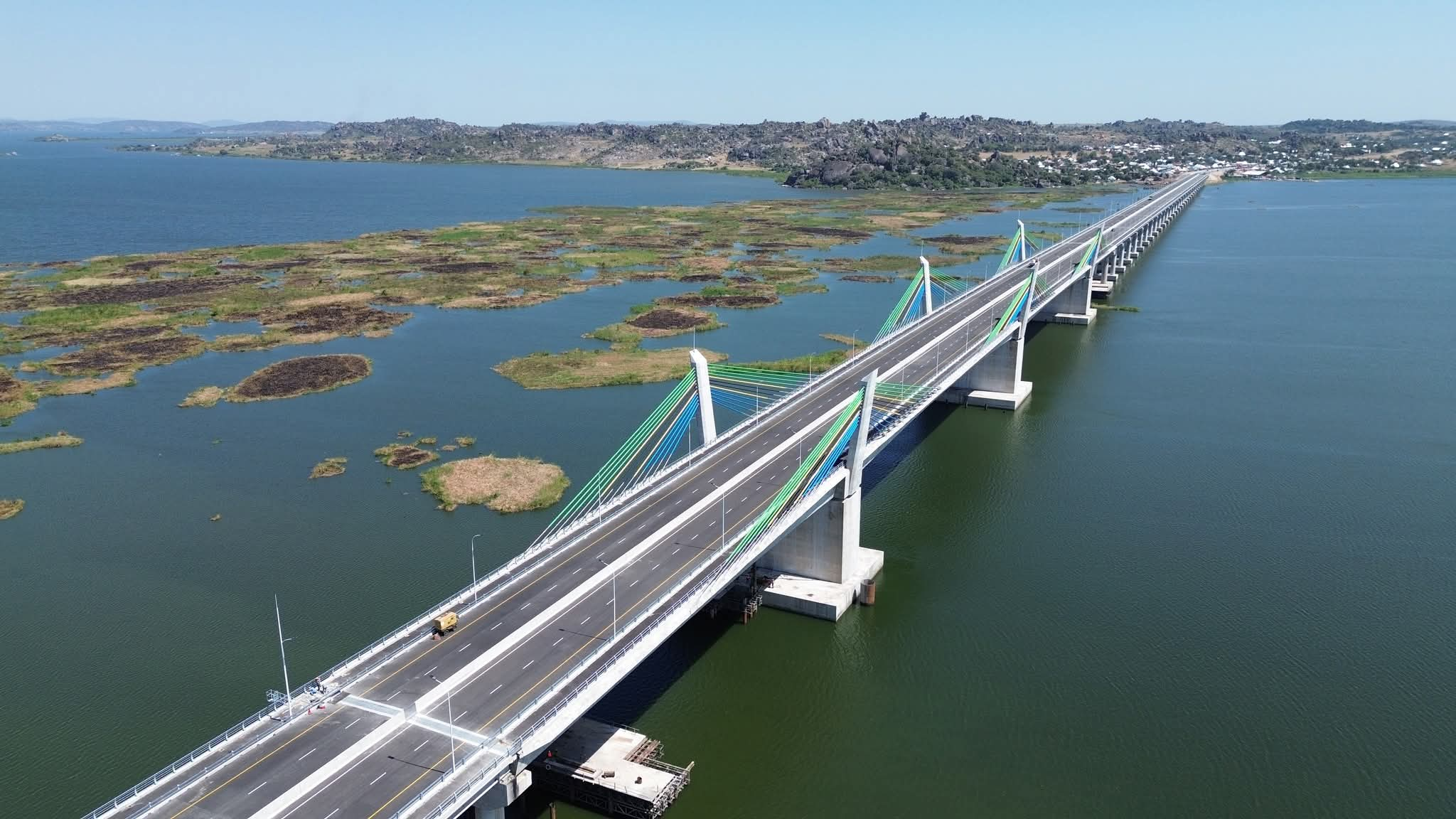ENERGY: The African Countries Eyeing Nuclear Power By 2030

Did you know that currently, only South Africa has an active nuclear power plant with an installed capacity of 1,940 megawatts while Russia's state-owned energy business Rosatom commenced construction of Egypt's first nuclear facility last year (2022)?
Constant electricity is a requirement for industrialization without which massive economic growth and development cannot be feasible. And for many African countries, particularly Nigeria in the West African region, epileptic power supply is further deepening poverty and scaring away investors. And in a bid to solve the power challenge, most African countries are gradually turning to nuclear.
Nuclear power is the use of nuclear reactions to produce electricity. It can be obtained from nuclear fission, nuclear decay and nuclear fusion reactions. Presently, the vast majority of electricity from nuclear power is produced by nuclear fission of uranium and plutonium in nuclear power plants. At least seven African countries are at various stages: commissioning, shopping for vendors and mapping appropriate sites; in the roll-out of nuclear power plants, as a majority eye 2030 as a start-date for generating electricity from nuclear energy. Here are some of the African countries with an eye on the energy source:
1️⃣ EGYPT is currently the only country to have begun construction, following the formal launch of a site in July 2022. The US$25 billion project, being developed by Russian state energy corporation Rosatom, will have total installed capacity of 4.8 gigawatts (GW) made up of four, 1,200 megawatt reactors, when complete. According to Rosatom Director-General Alexey Likhachov, during the launch, “Egypt has joined the nuclear club. The plant will be the largest project of the Russian-Egyptian cooperation since the Aswan High Dam...”
2️⃣ KENYA is also inching closer to the development stage, after identifying two coastal sites—Kilifi and Kwale counties–earlier in 2022, to put up the country’s first nuclear power generator. The country’s Nuclear Power and Energy Agency (NuPEA) has estimated the project would cost about US$50 million, with construction works planned for 2030, a test run four years later and full operations projected for 2036. NuPEA Chief Executive Officer, Collins Juma, while speaking during the Tenth Review Conference of the Parties to the Treaty on the Non-Proliferation of Nuclear Weapons early August, said: “There is a need to complement the existing renewable energy sources in Kenya to meet the projected energy demand while achieving low carbon development, through alternative low carbon source.”
3️⃣ UGANDA. The Ugandan government led by President Yoweri Museveni said it plans to generate at least 1000 megawatts (MW) from nuclear power by 2031 as part of its efforts to diversify its electricity resources and speed its energy transition, which is a critical component of its climate change response. Uganda is considering three sites—on the Kyoga, Kagera and Aswa rivers—for the construction of two 1,000 megawatt reactors, by 2031. This follows agreements reached by the country’s Ministry of Energy with Russian and Chinese investors. In May 2022, the International Atomic Energy Agency (IAEA) gave Uganda the green light to start building and production of nuclear power. To this effect, Uganda inked a deal with China that stipulates that the China National Nuclear Corporation (CNNC) would assist Uganda in developing capabilities for the peaceful use of atomic energy. The first nuclear facility, Buyende Nuclear Power Plant, would be constructed roughly 150 kilometers (93 miles) north of Kampala, according to Energy and Mines Minister Ruth Nankabirwa Ssentamu in a statement.
4️⃣ NIGERIA. After a false start, Nigeria is starting all over again. Nigerian Nuclear Regulatory Agency opened bidding for construction of a 4 gigawatt nuclear plant in March, 2022—and the country is reportedly betting on the four-reactor power plant with an equivalent of a third of the country’s total installed capacity, to address power outages. In 2016, the West African nation reportedly sealed a US$80 billion plan for four nuclear stations with Rosatom but this never materialised.
5️⃣ TANZANIA. After the discovery of uranium deposits more than four years ago, Tanzania is looking to help from Rosatom and its subsidy Uranium One, which has a license to mine uranium in the Mkuju River within the Selous Game Reserve, to build a research reactor and subsequently set up a commercial nuclear plant.
6️⃣ MOROCCO. In June, Morocco advanced its plans for nuclear energy after the release of a report that gives its legislators recommendations for making a switch to renewable energy sources. According to its Energy Transition and Sustainable Development Minister Leila Benali, as quoted by Moroccan media, said: “Morocco has invested in solar and wind energy, and it is now eyeing nuclear energy to ensure its electricity needs in the future… we now need a national decision to start producing electricity from nuclear energy.” Morocco is largely an energy imports-reliant country, importing up to 90 percent of its annual energy requirements.
7️⃣ RWANDA is also making significant strides after signing a deal with Rosatom to build a center of nuclear science and technologies, in October 2019. In August 2022, 100 Rwandans are expected to graduate in the field of nuclear science and technology and in the next two years, a centre of nuclear science and technology is scheduled to be constructed in the Bugesera Industrial park. While other countries are chasing after large projects, Rwanda plans to build two Small Modular Reactor (SMR) units, each with a capacity around 100 megawatts.
A 2022 forum report by the Mo Ibrahim Foundation shows that small modular reactors can be mobilised more quickly and present more short-term opportunities for nuclear power in Africa. As more countries push on with the switch to low carbon electricity, South Africa has been eyeing an additional 10,000 megawatt in nuclear power capacity. However, there has been widespread opposition by an anti-nuclear lobby.
Sources: Business Insider | The East African
#penglobalreport #nuclearpower


_1755775186.jpg)
